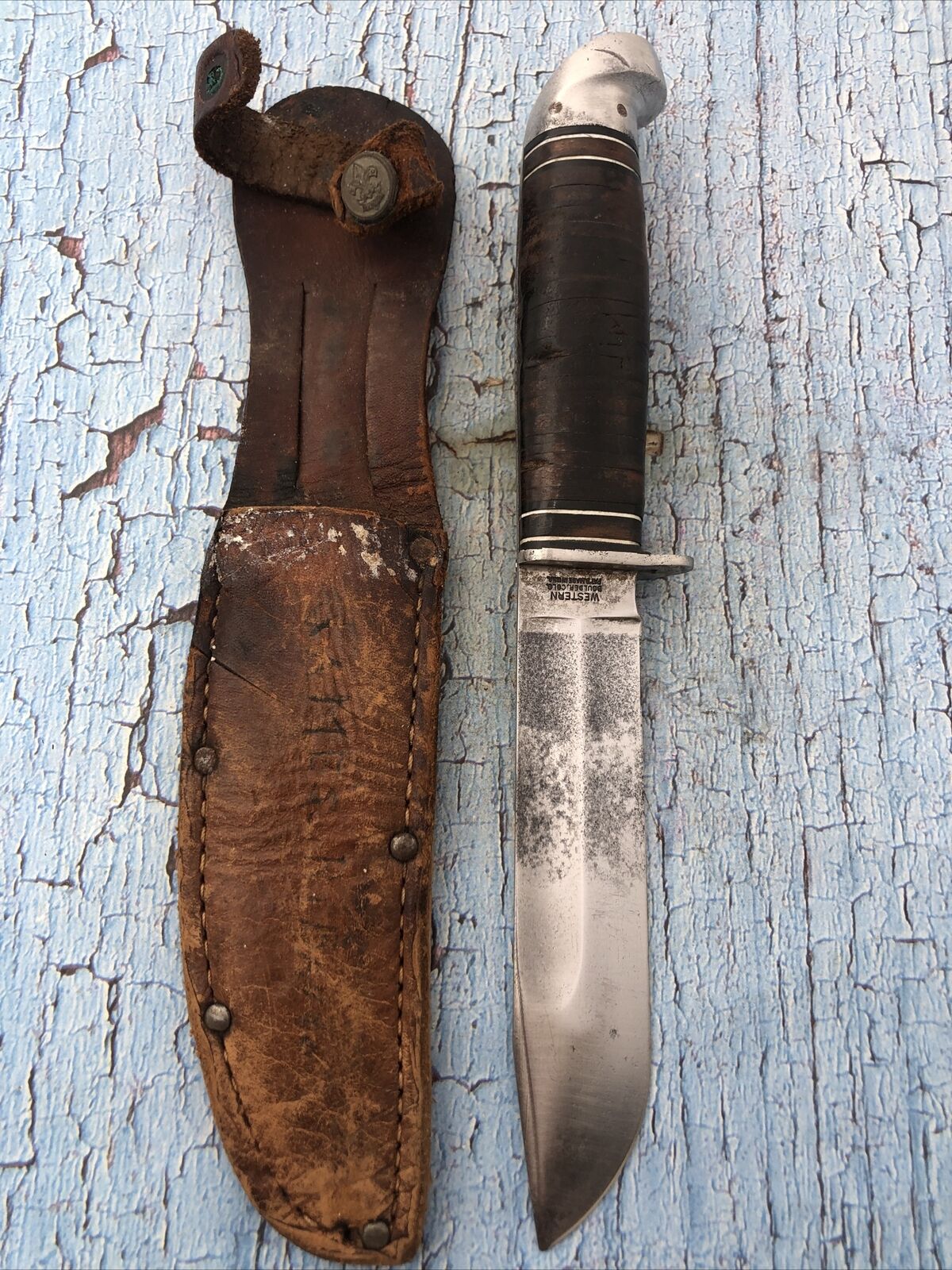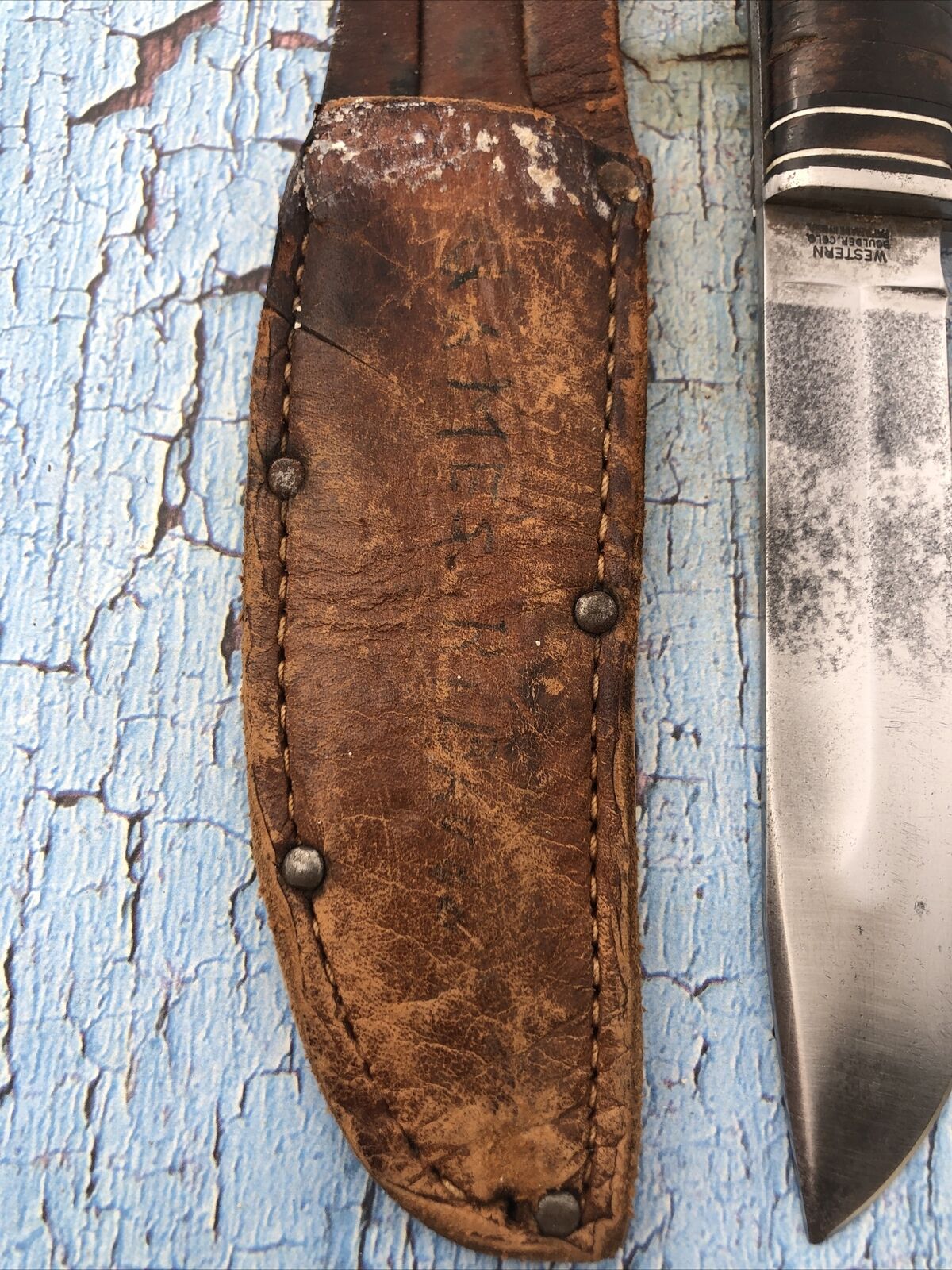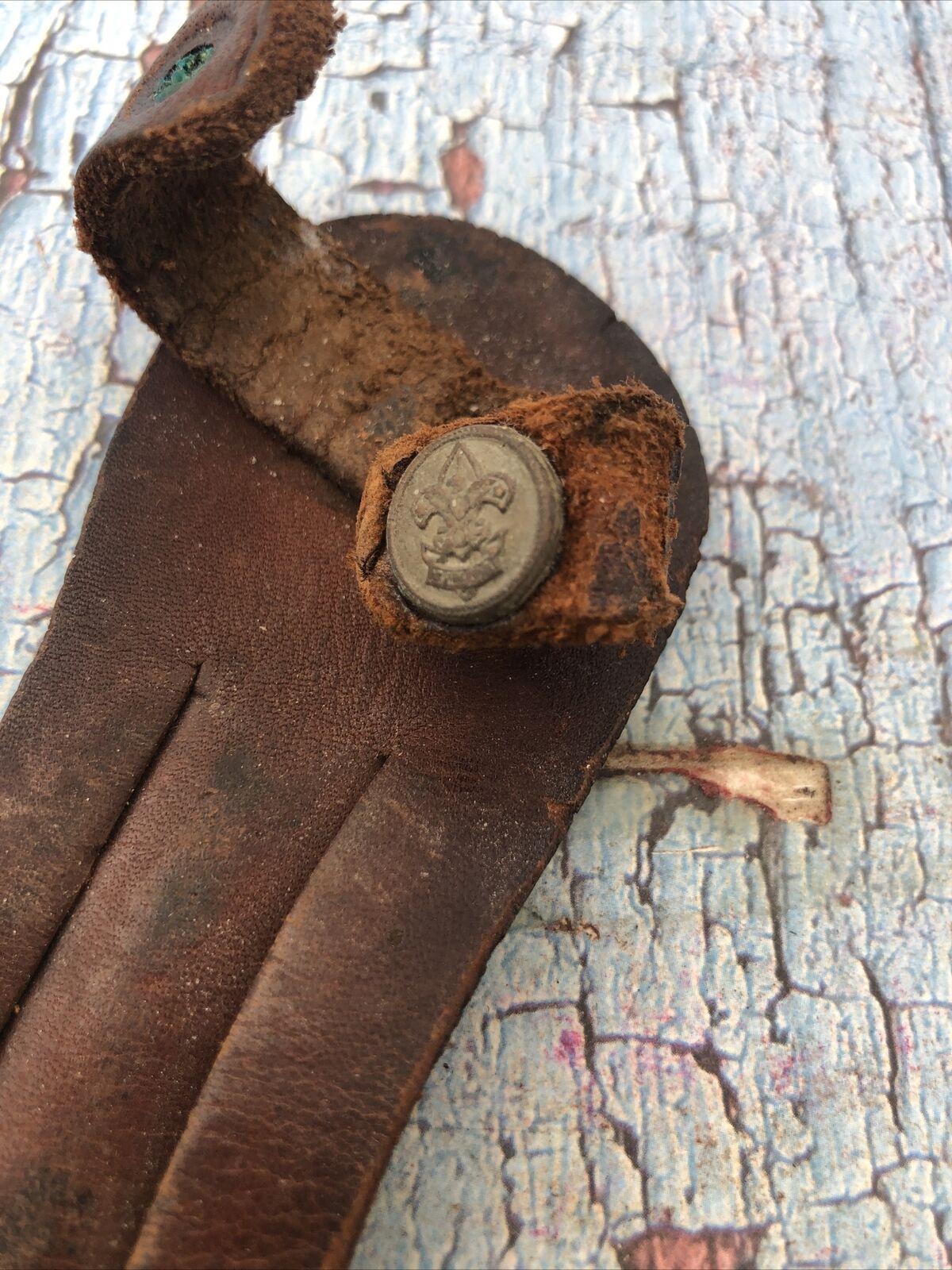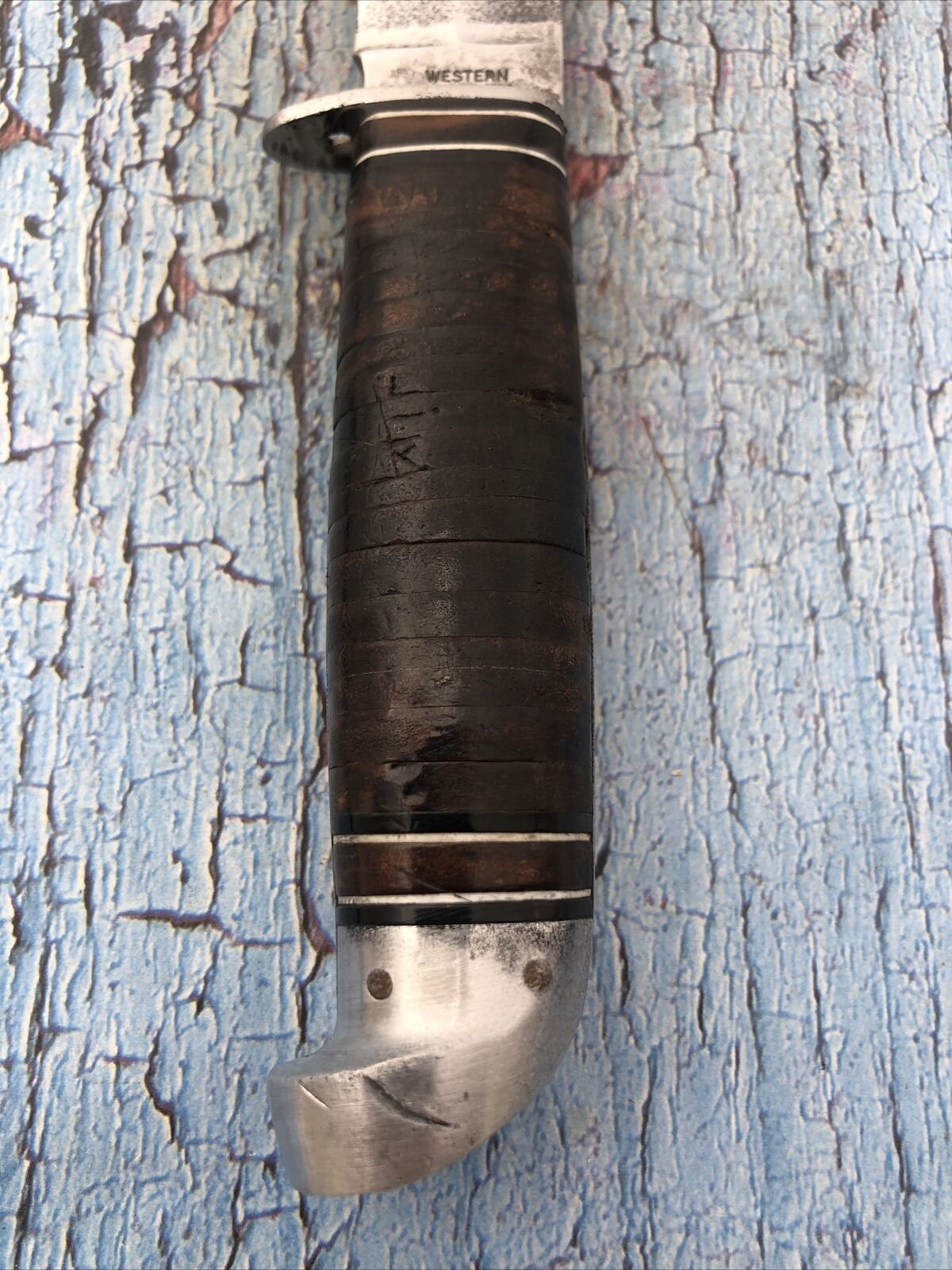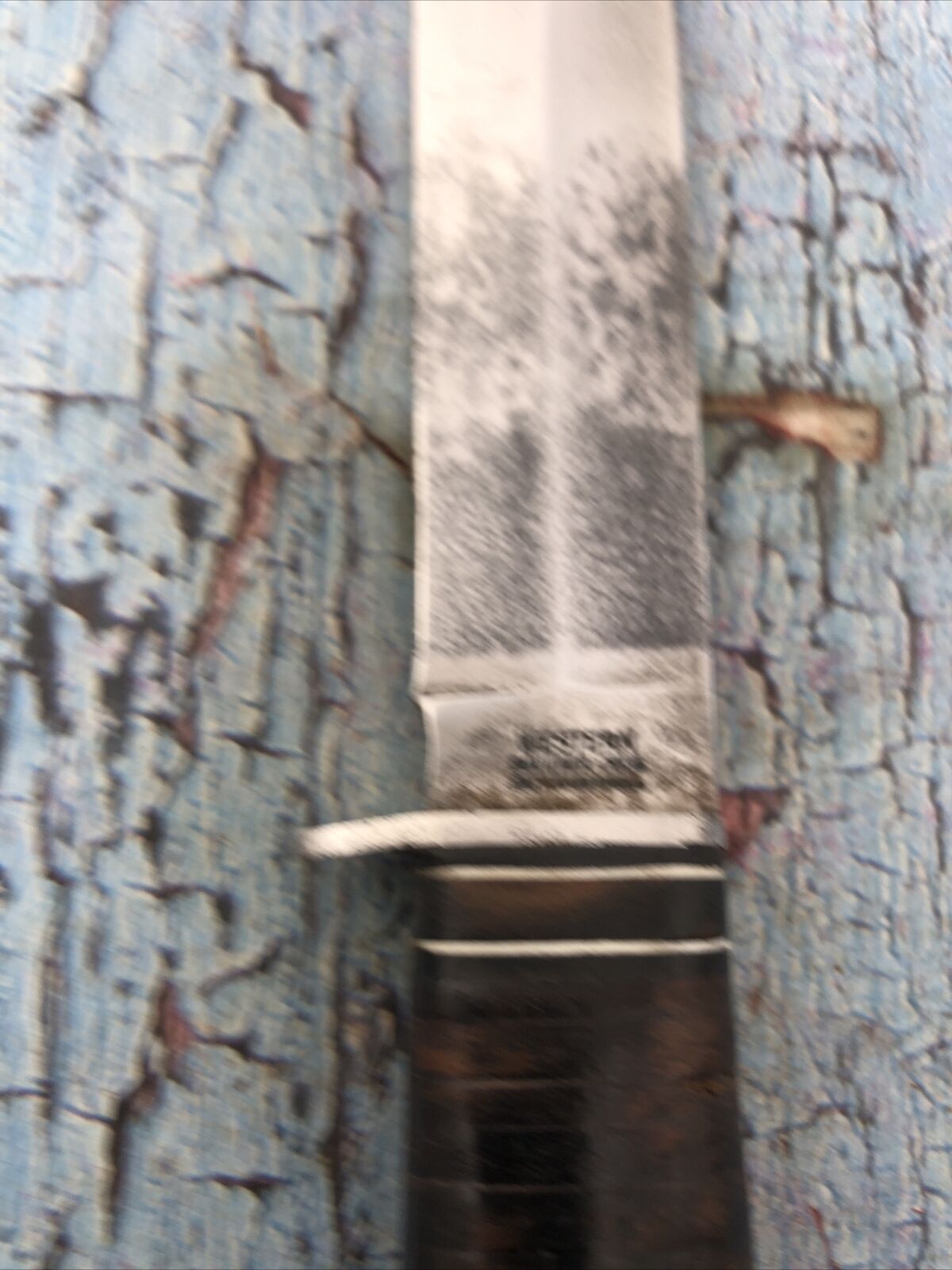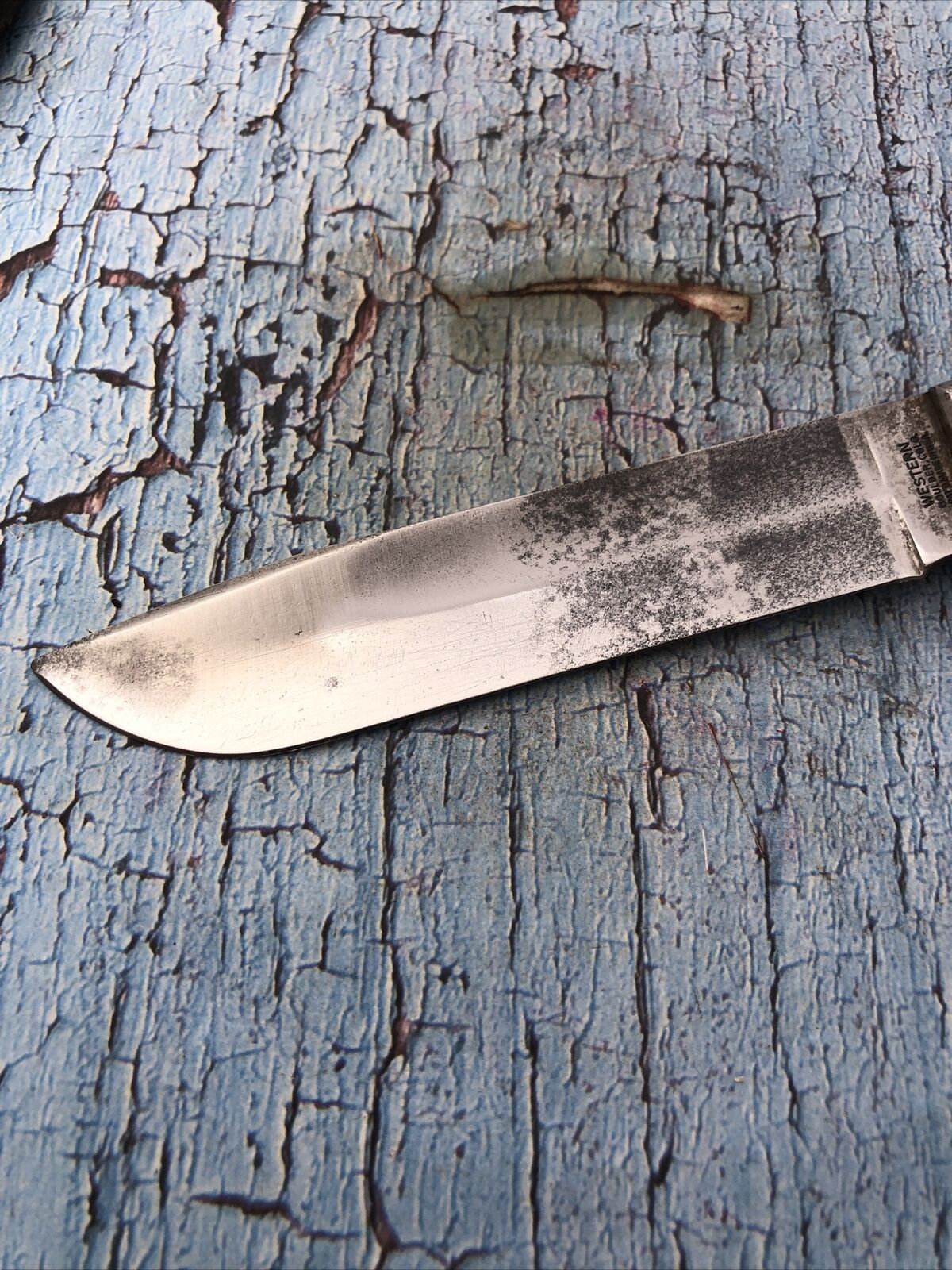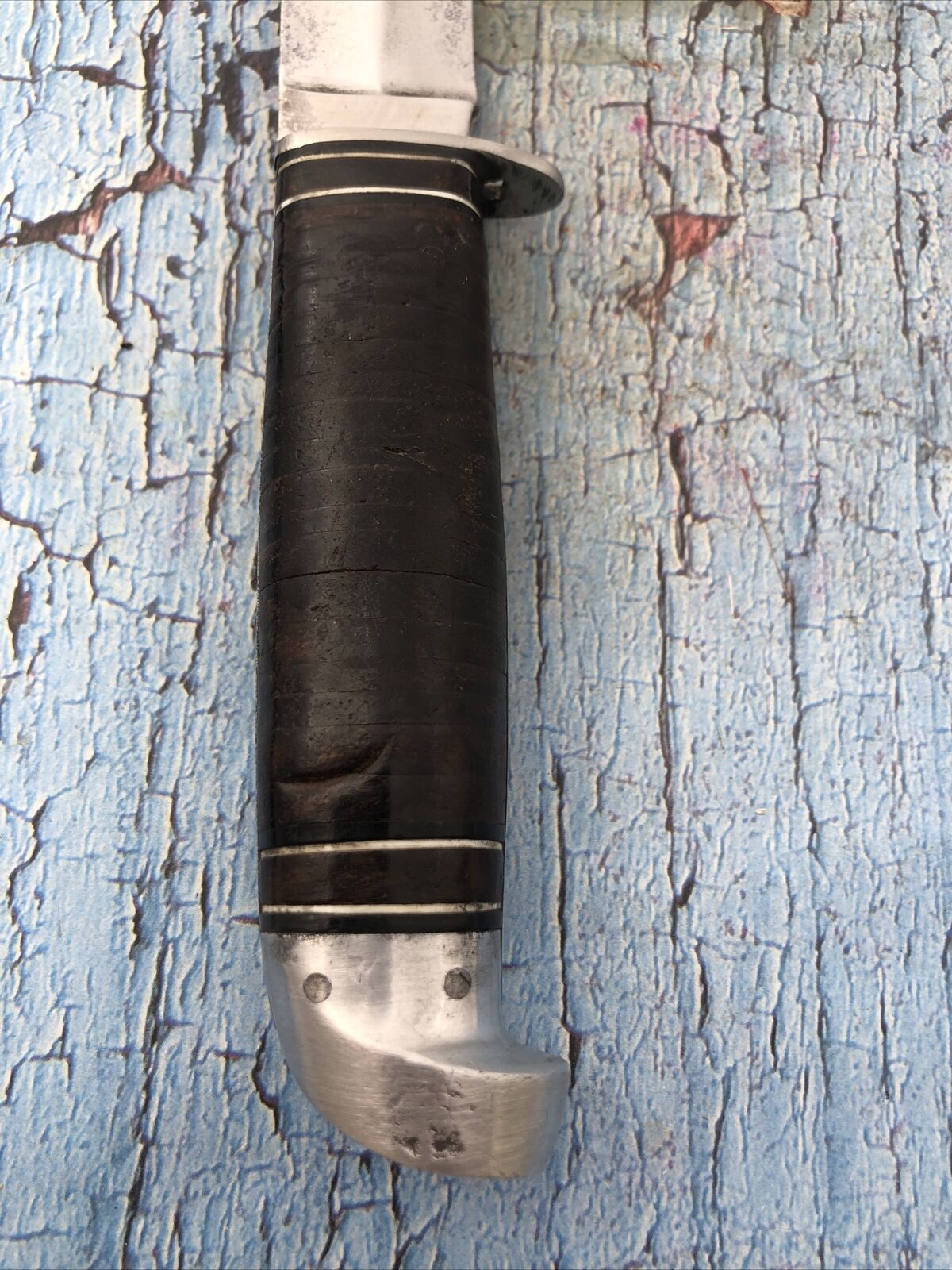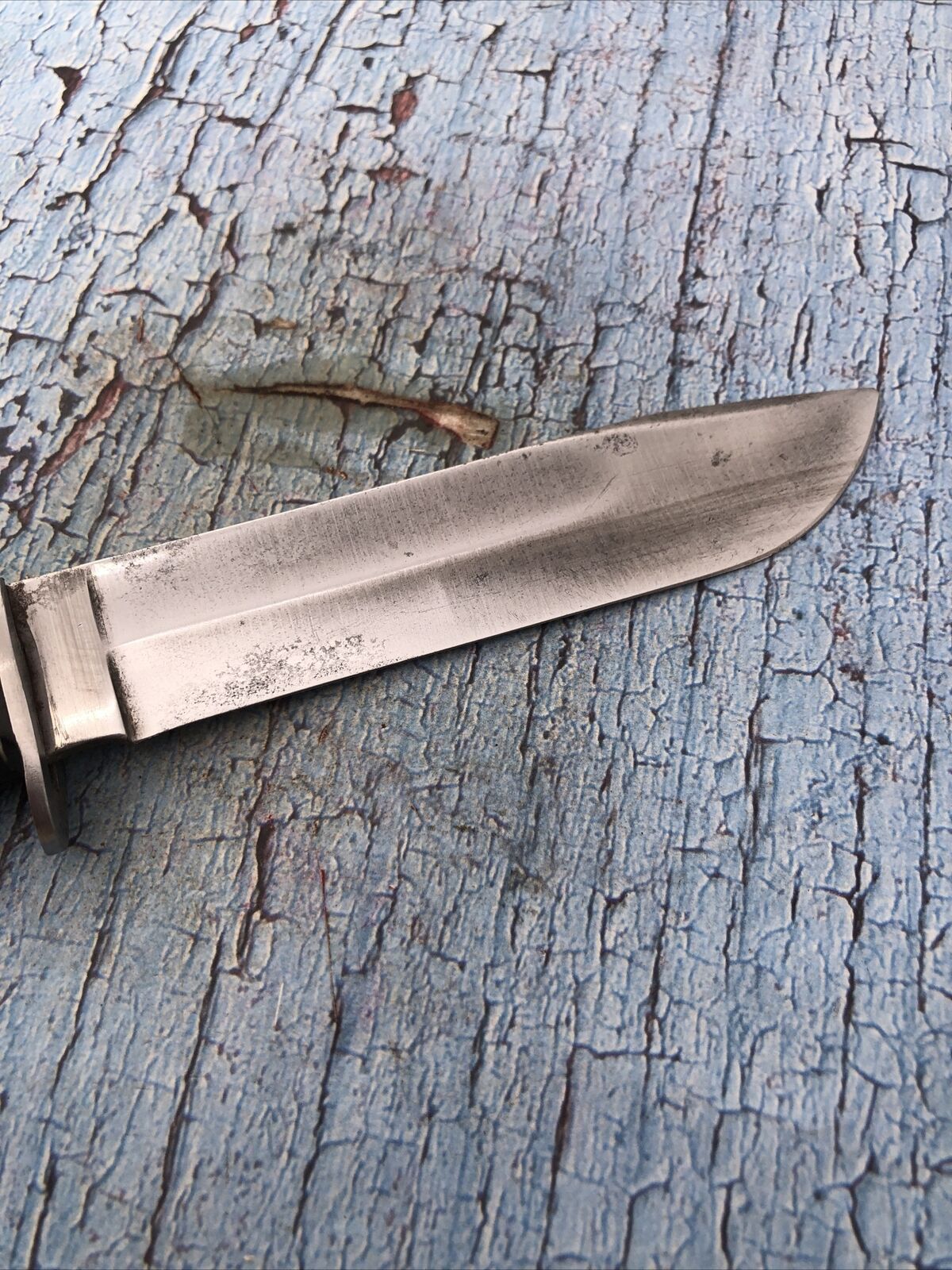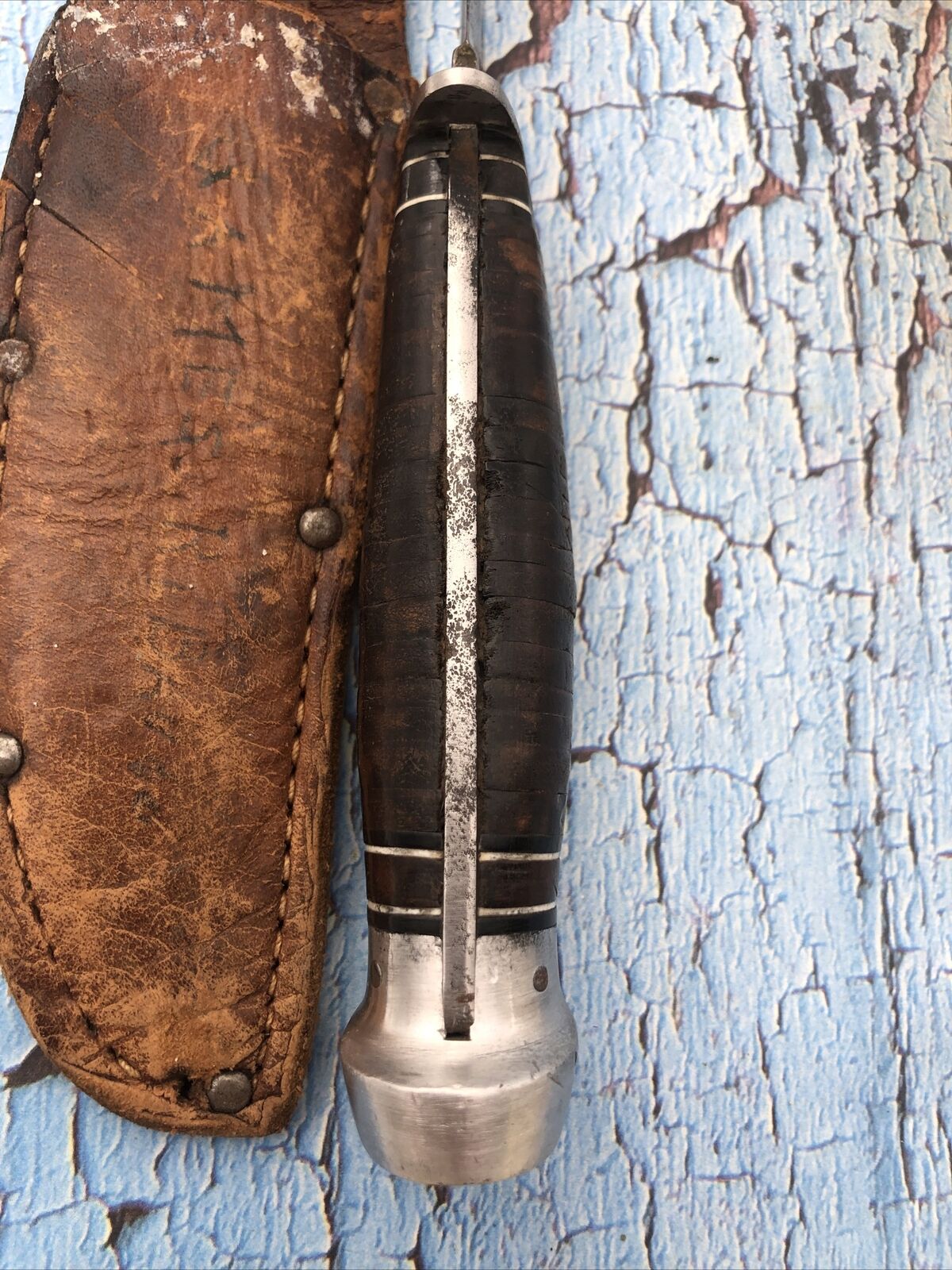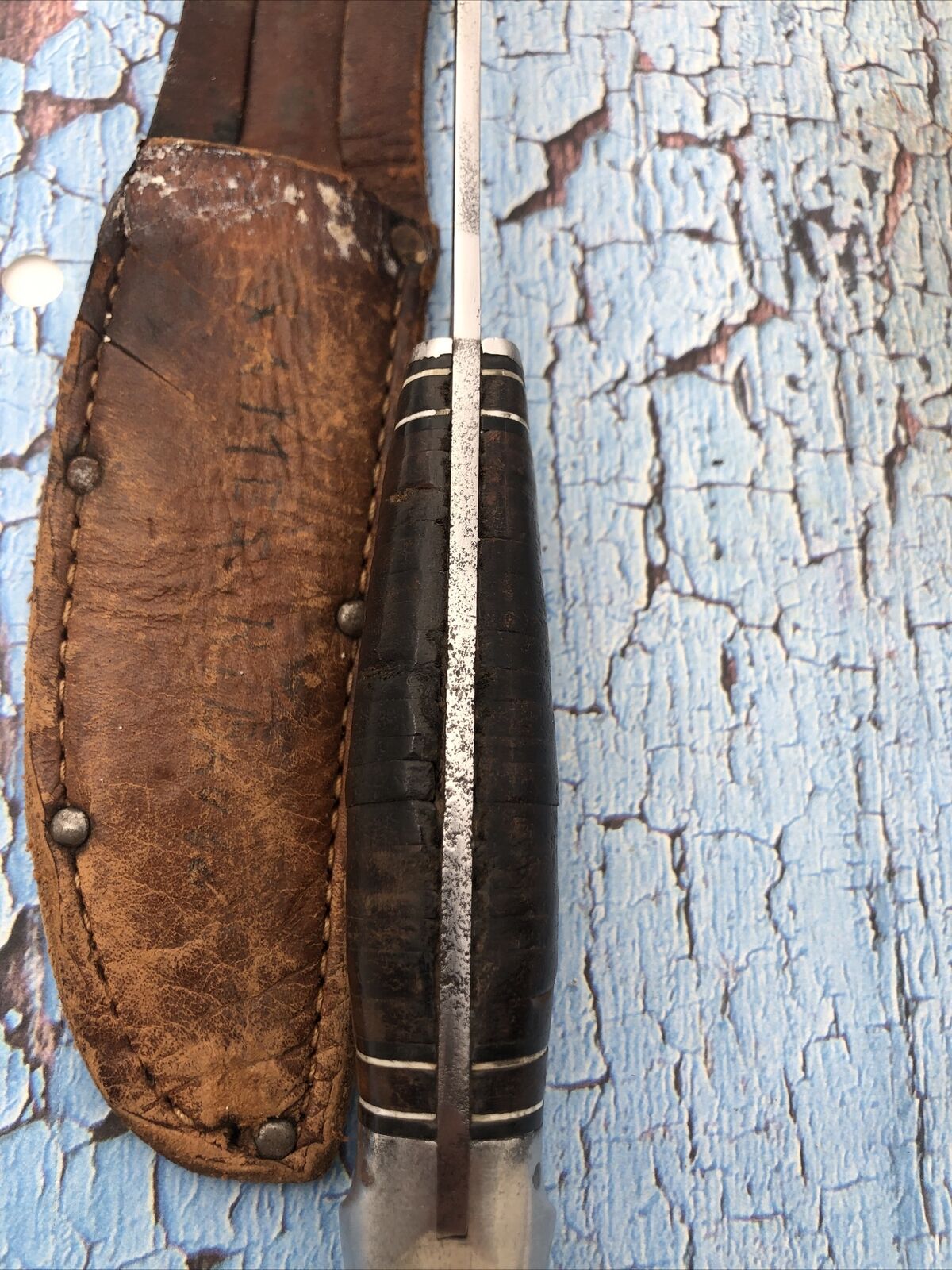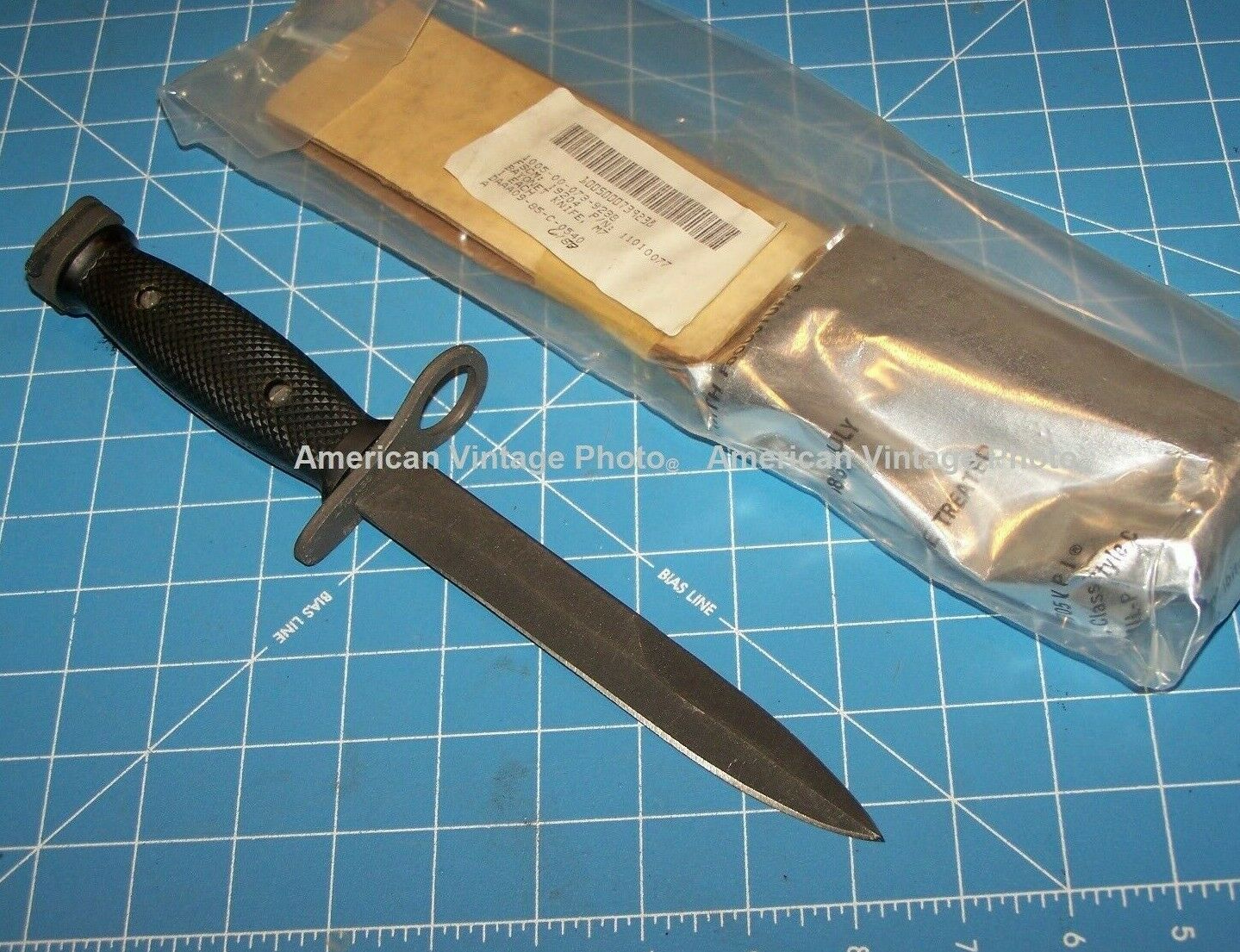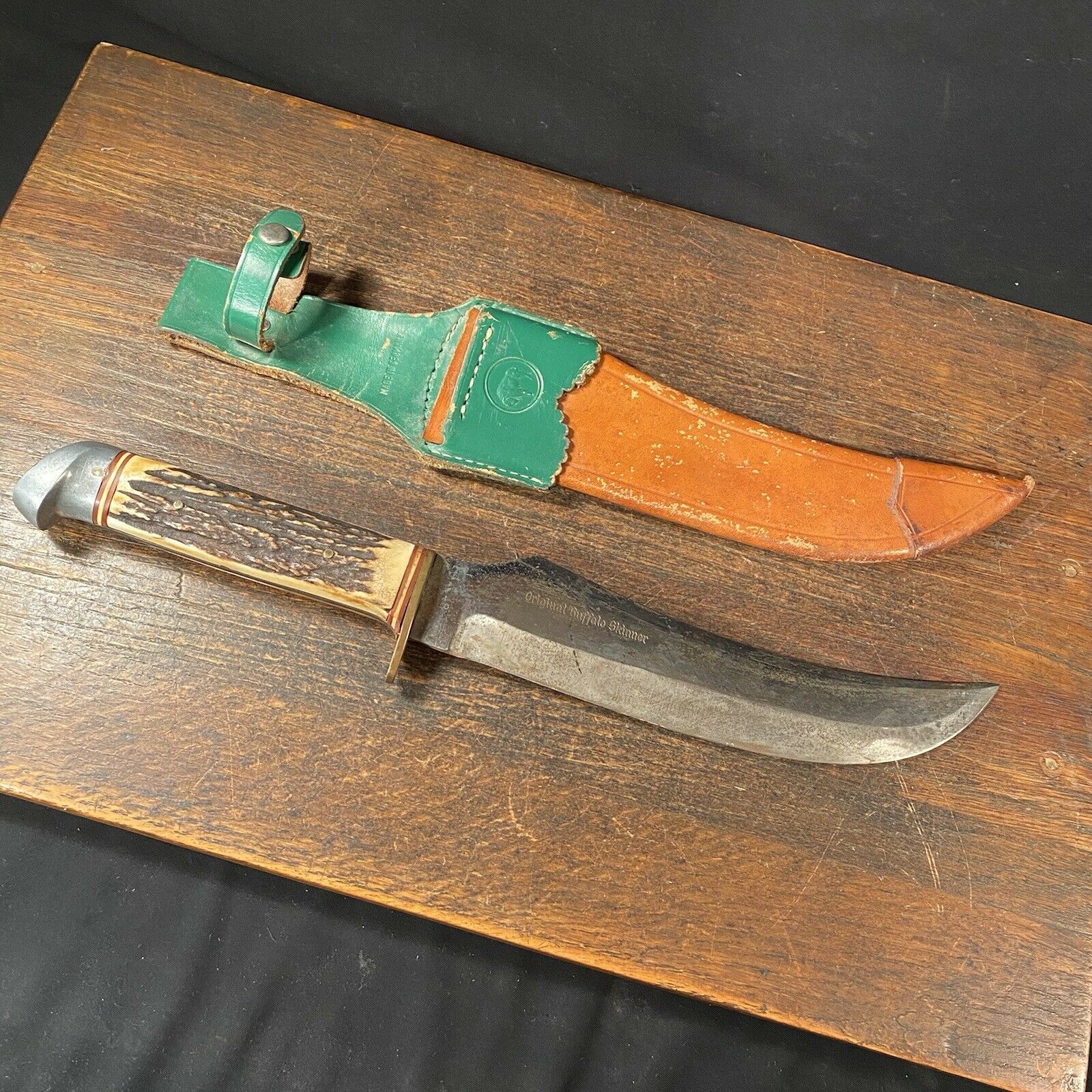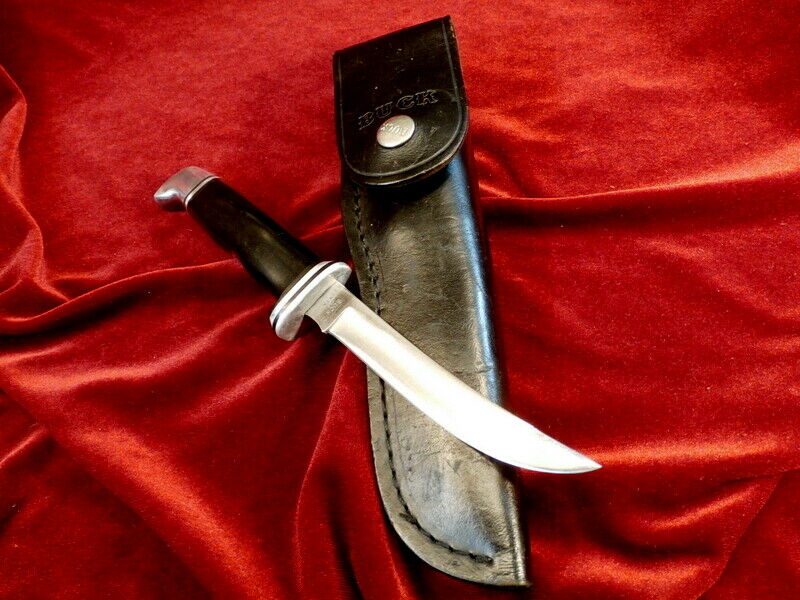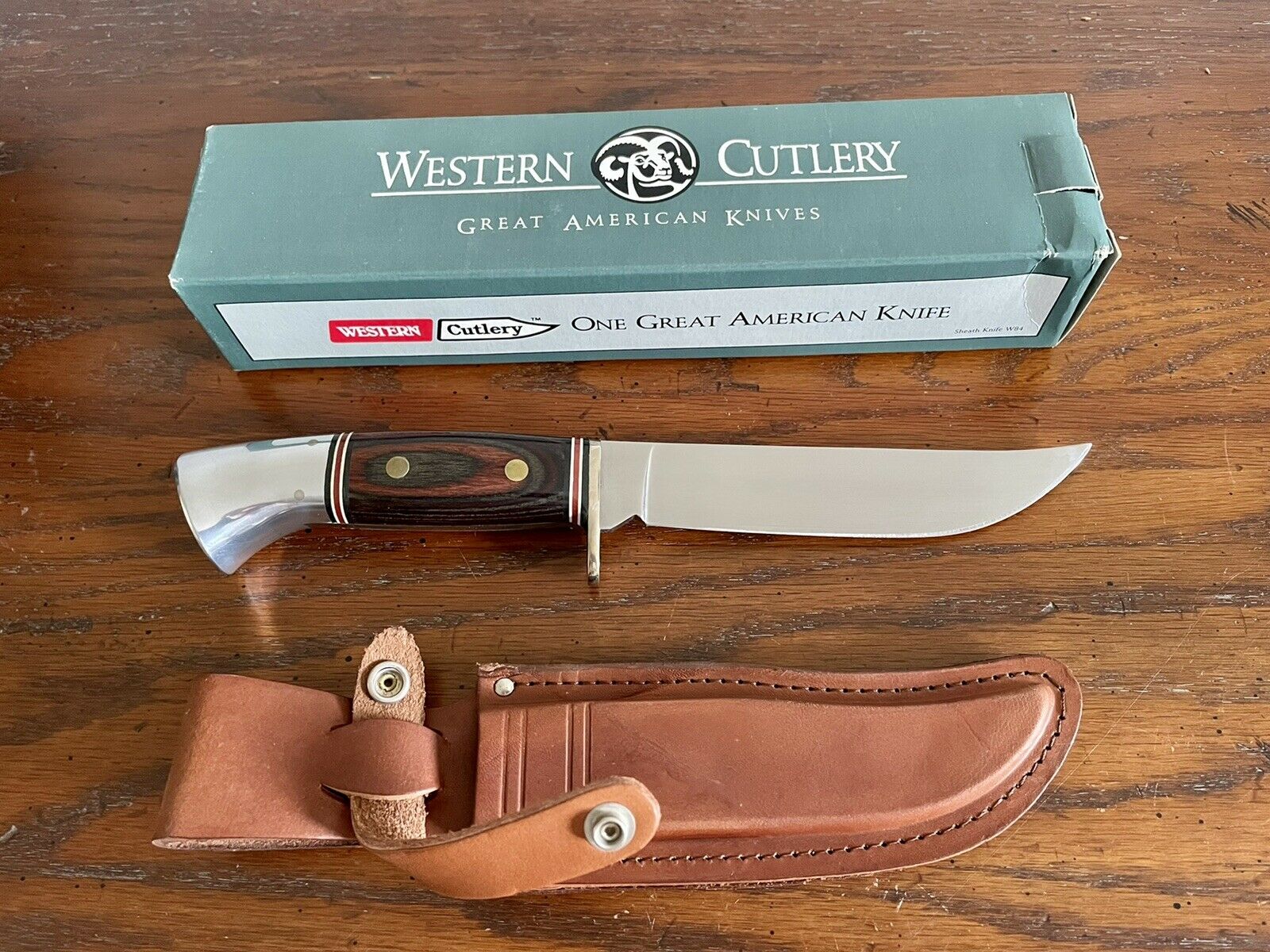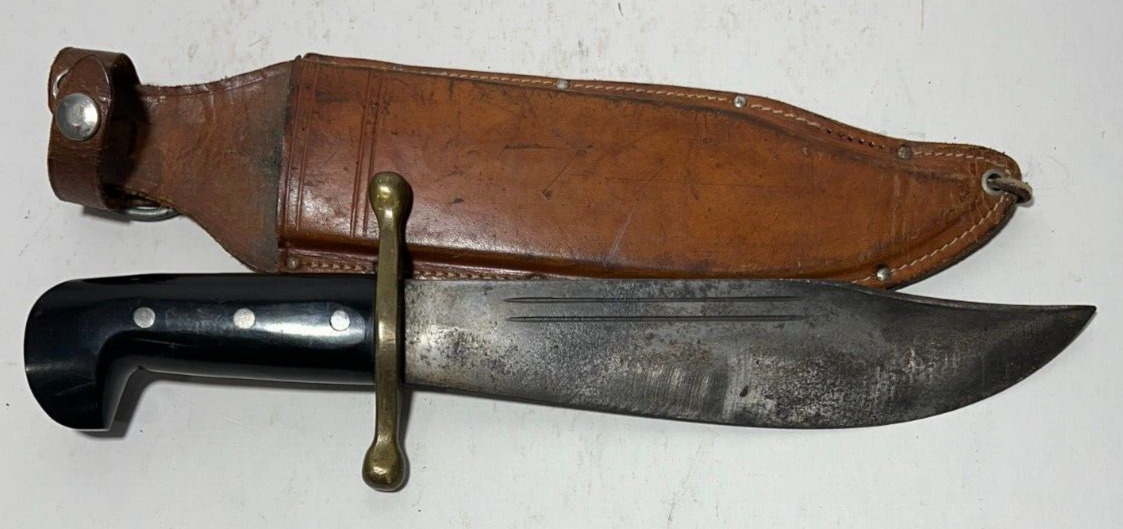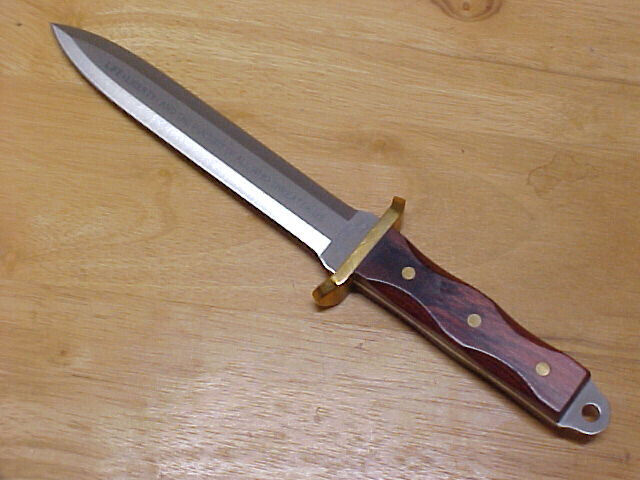-40%
1935-1950 Western USA Stacked Leather Slab Side Hunter With Sheath
$ 36.95
- Description
- Size Guide
Description
Old School Knife Works is proud to present this Vintage Western. These are increasing difficult to find in this condition. Please read the description before bidding. See our other items on eBay.Details, condition and description
Condition: high very good with sheath
Name: hunter
Pattern: Na
Serial number: none
Blades: 1
Overall Length: 8.8”
Blade Length: 4.6”
Year: 1935-1950
Handle Material: Stacked Leather
Blade: carbon steel
Blade etch: none
Other: Very full blade, some light pitting. Low excellent to high very good but I’ll let the pictures do the taking. Nothing is loose and knife will certainly perform as it should. Knife was likely stored in the sheath for many years hence the condition. Tang stamps are also superb. Sheath intact, old with broken snap. Sheath is a Boy Scout sheath but not sure if this was a Boy Scou knife as it has no blade etch.
Offered with free shipping.
Policies and general grading information:
Shipping: all of our listings include free shipping. Please note that our free shipping does not include insurance. We are happy to insure packages upon request. We are also happy to offer alternative shipping services such as fedex and ups. These services are not included under the our "free shipping" offering.
If you make a purchase, we will provide a tracking number from USPS that is traceable through their system. IMPORTANT.... Once the package leaves our corporate offices, we are no longer responsible in any way for a lost or stolen package unless you have requested and been granted insurance as a part of your purchase. If you live in a bad neighborhood, provide an incorrect address or for whatever reason don't receive your package, please contact USPS with the tracking number that we have provided. We do not have any authority or special powers with the United States Postal Service and have less ability to locate your parcel than the addressee.
Grading:
* Please read the description before bidding. We normally provide 8-12 high definition pictures to assist you in making a determination on quality. Unfortunately there is no standard universal measurement for quality, grade or condition as it pertains to blade wear, rust, pitting, water marks, handle quality, gaps, tightness of blades, snap, wobble, degree of polish, whether a knife has been "cleaned", etch quality, tang stamp quality, sharpness, r as the description. If you have a question that isn't addressed in the description or the photos, please ask. We want you to be happy with your purchase as we strive for accuracy and customer satisfaction. You are also welcome to visit our store in Otto, NC where you can view any of these knives.
General grading information:
Mint: a mint knife is one that looks and functions as factory new. ***note that many multi blade knives come directly from the factory with blade rub marks. This seems particularly true for stockman knives***
Near mint/mint: looks and functions just like a factory new knife, but will have a minor flaw that prevents it from being described as mint. Such flaws may include: scratches, in need of polish, a slight rust or corrosion Mark, a very light sharpening etc. these knives generally haven't been used with any regularity but have been out of the box and perhaps even been logged around in a knife roll. Most of the time this quality can be cleaned to mint but not always.
Near mint: a knife that presents very well but that is not new. A great example is to consider a new knife that goes into your pocket and is carried around for a couple of months and is then put away. It will have bounced around next to a set of keys, have a ding and some scratches, possibly has dulled and been lightly resharpened, has been dropped once or has taken a ride in the washer and dryer. It should be difficult to tell if it has been sharpened and should look well cared for.
Excellent: typically this grade definition is used for older knives that have survived in much better than average condition. These knives will have most of the original blades intact, tang stamps will be visible, handles will be very nice and intact. Snap may be soft or softening on the main blade. A slight gap, a slight knick, or very small non loose crack in the handles may be acceptable particularly for stag handles. These knives should function well and retain most of their original beauty. It should be noted that for our purposes here, an excellent 1920's Remington will likely be in slightly poorer overall condition than an excellent 2011 Case. This is primarily true due to being in circulation for 90 years vs. 5 years.
Very good: these knives are survivors, often have been Cleaned or restored to remove rust, or resharpened several times. These knives have likely been carried for many years, but still have life and function. The handles may be faded, slightly chipped, snap might be gone, etc.
Good: the knife functions, but may have a more pronounced flaw or many smaller flaws. These knives have been used. More pronounced pitting should be expected on Carbon steel blades and these knives may be missing legible tang stamps.
* please note that these descriptions cannot begin to describe the multiple variables that go into grading or evaluating a knife. Unfortunately a great deal of interpretation is necessary in order to make these determinations.
